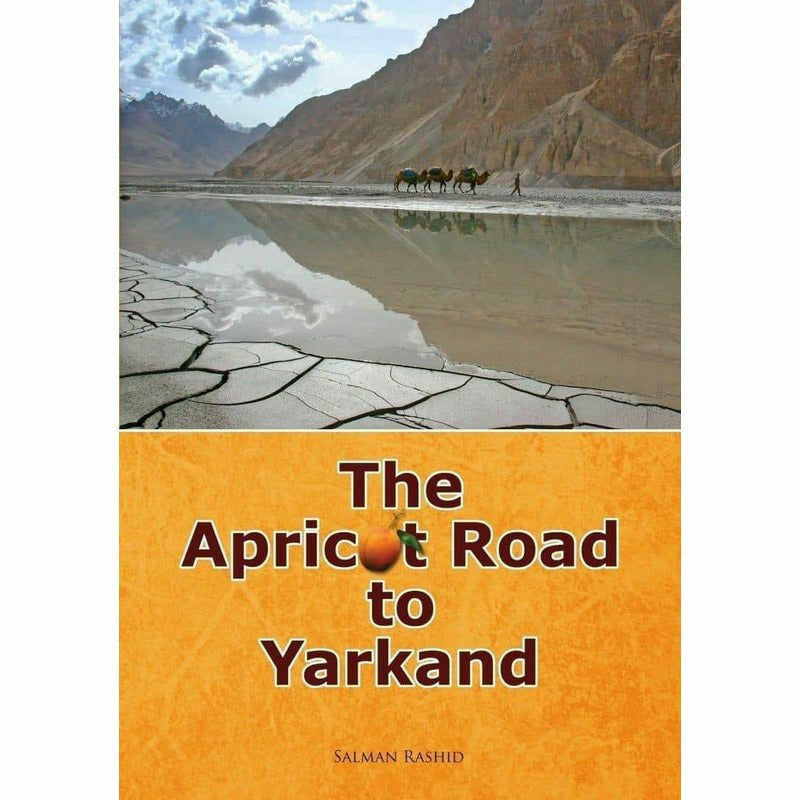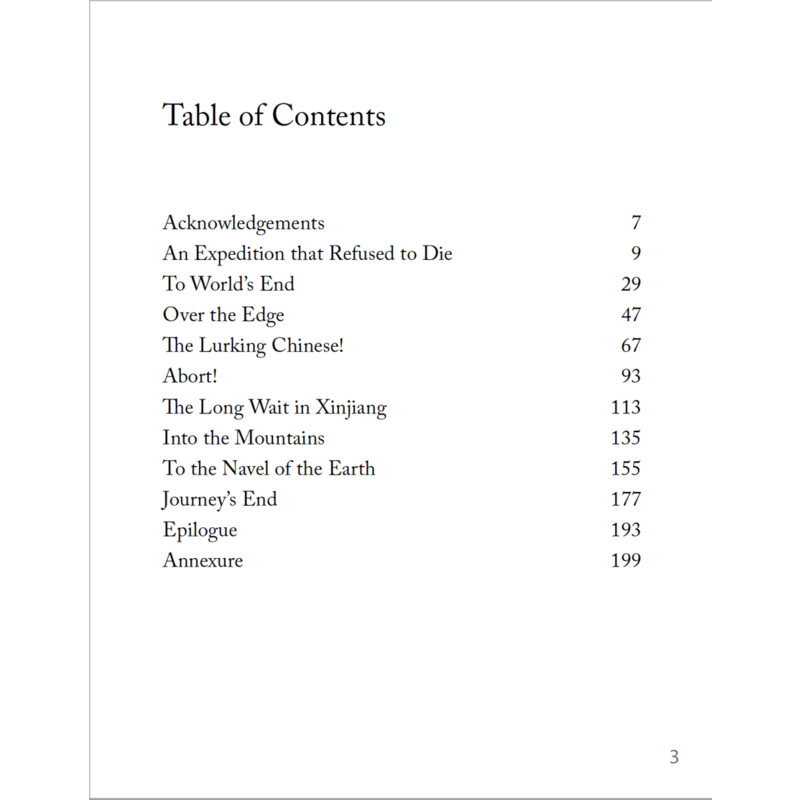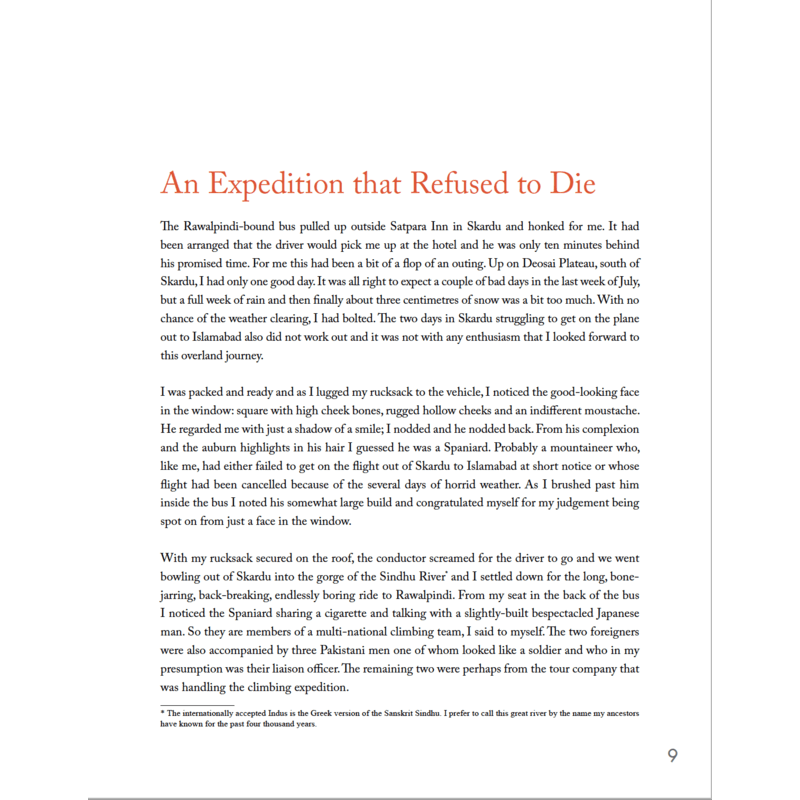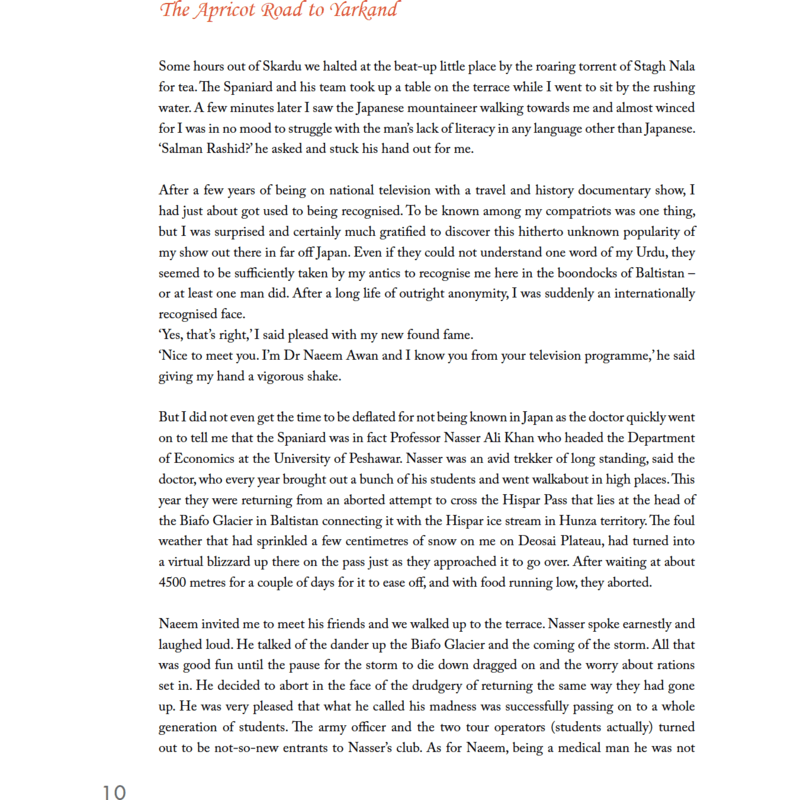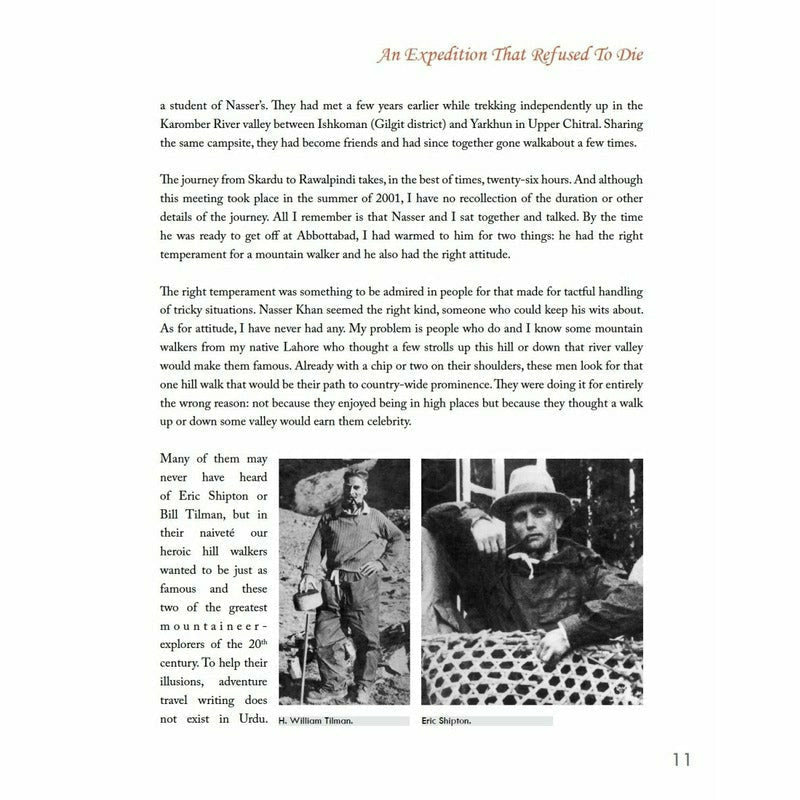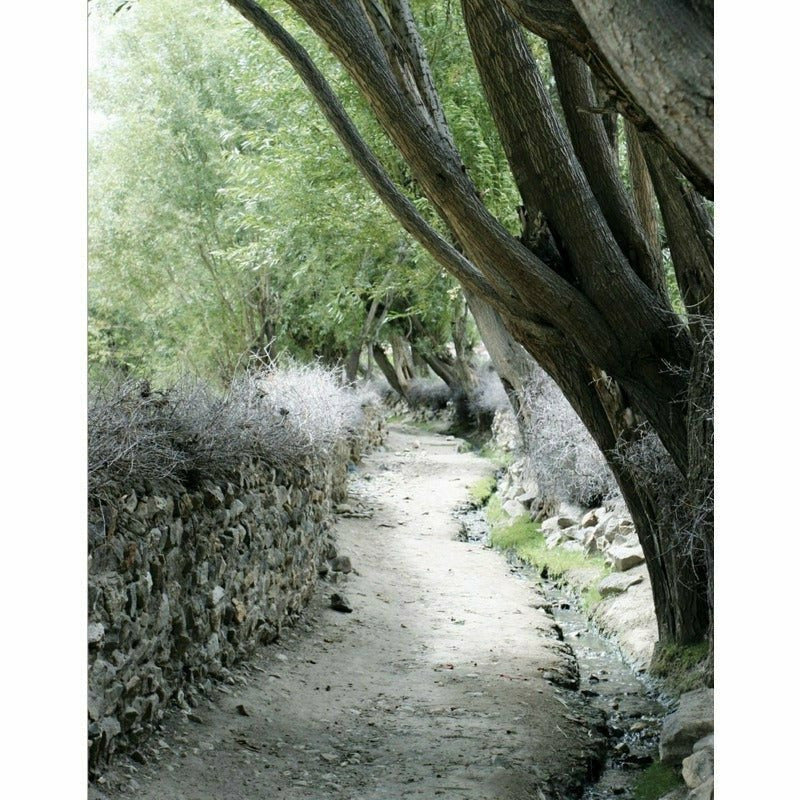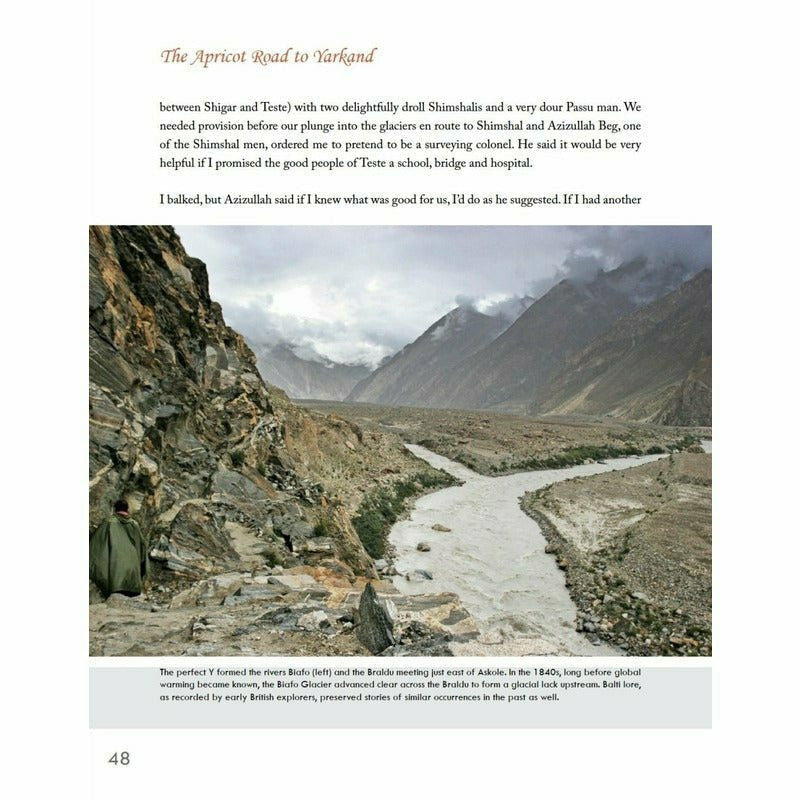The Apricot Road To Yarkand
The Apricot Road To Yarkand
Couldn't load pickup availability
Long before the first European explorers ventured into the ice world of the high Karakoram, the people of Baltistan were walking, exploring and discovering the great jumble of high peaks and glaciers. From their base in Shigar valley (north of Skardu), these unknown mountaineers, actually shepherds and hunters forever in search of newer pastures and more game for the fleshpots, struck out to the northwest into the web of glaciers of the central Karakoram Range. Off to the east, the Karakoram Pass had been traversed since before the advent of the modern era, and it would have been known to the Baltis that if they went where no man had gone before, then over some high glaciated pass they would meet up with the old north-south route over the Karakoram Pass connecting Yarkand with Leh and Srinagar. And so the Muztagh Pass, 5300 metres high, was discovered. After several hundred years of remaining in use, decaying glaciers made it increasingly difficult for laden caravans of yaks and Bactrian camels to negotiate the glacier. The pass was abandoned in or about 1780. In the early years of the following century the Raja of Baltistan ordered reconnaissance for a new pass. The result was the opening of another route about 16 km west of the old one that European explorers dubbed the New or West Muztagh Pass. The Apricot Road to Yarkand is a celebration of the hitherto unacknowledged courage and exploratory skills of the people of Baltistan.
Title: The Apricot Road To YarkandAuthor: Salman Rashid
Subject: History
ISBN: 9693523717
Year: 2011
Language: English
Number of Pages: 204
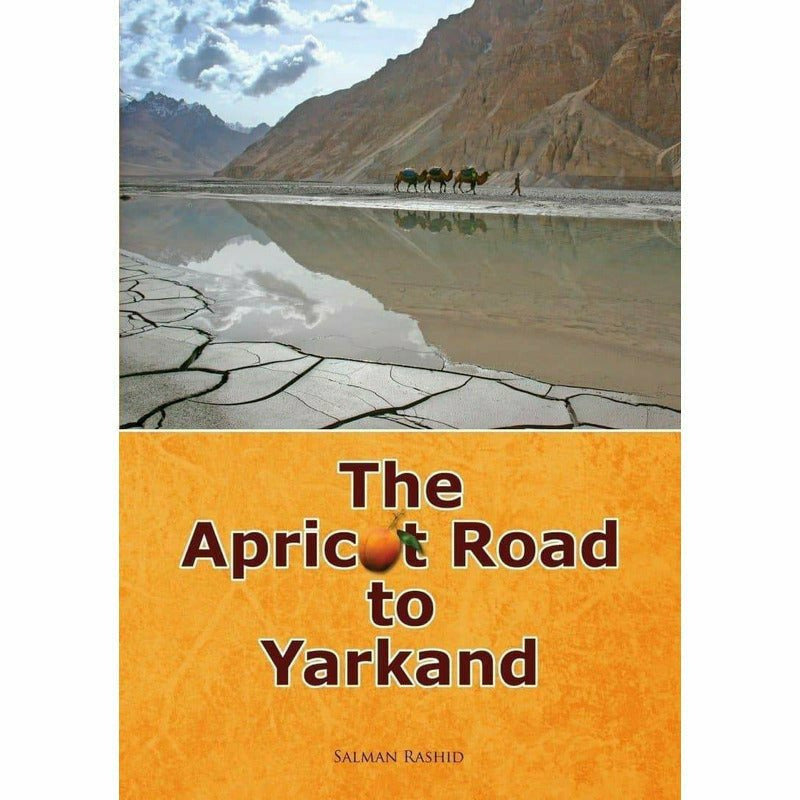
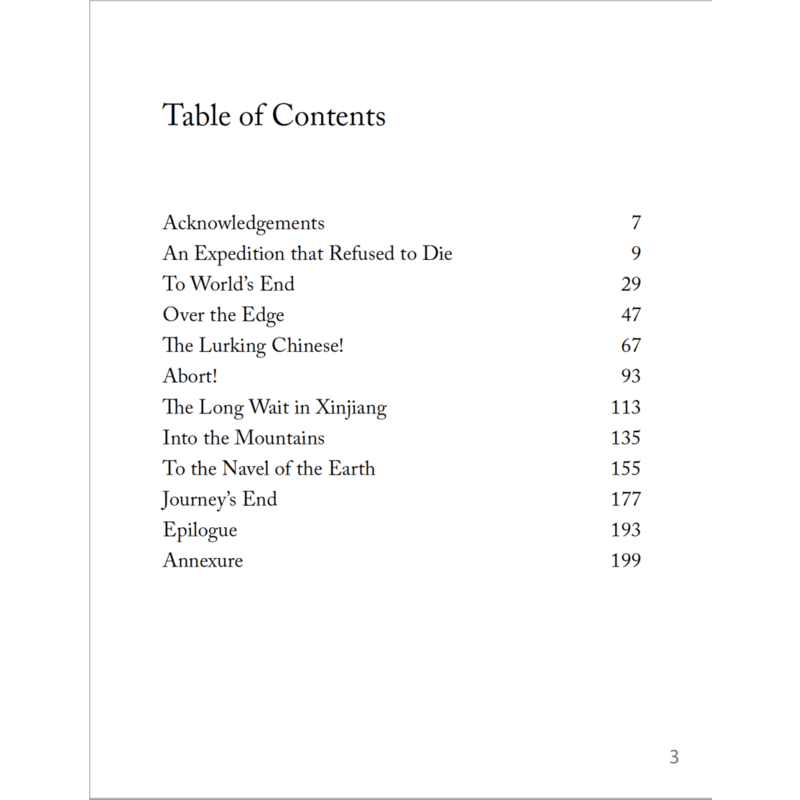
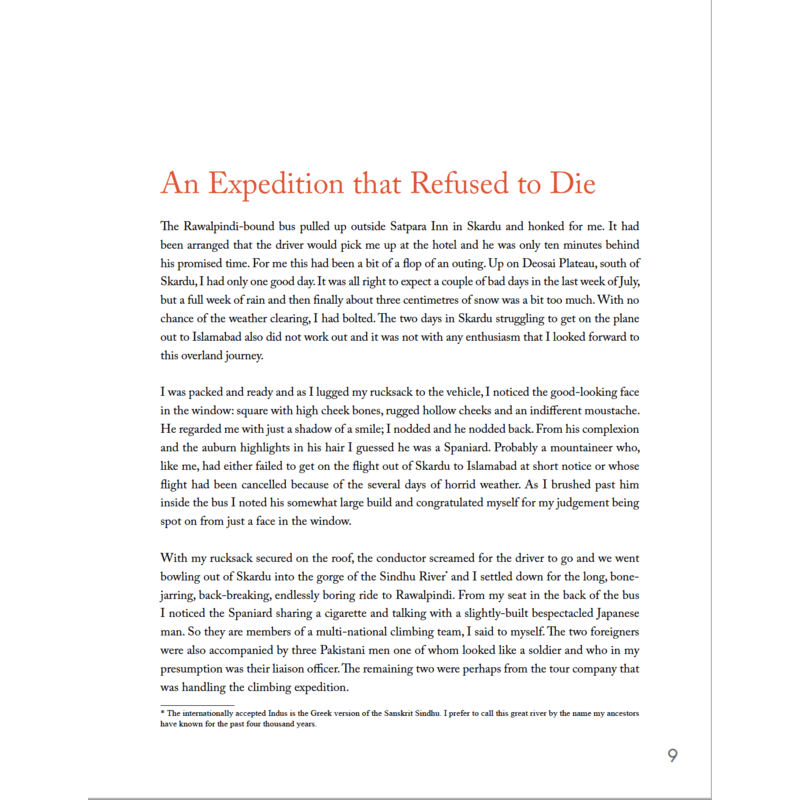
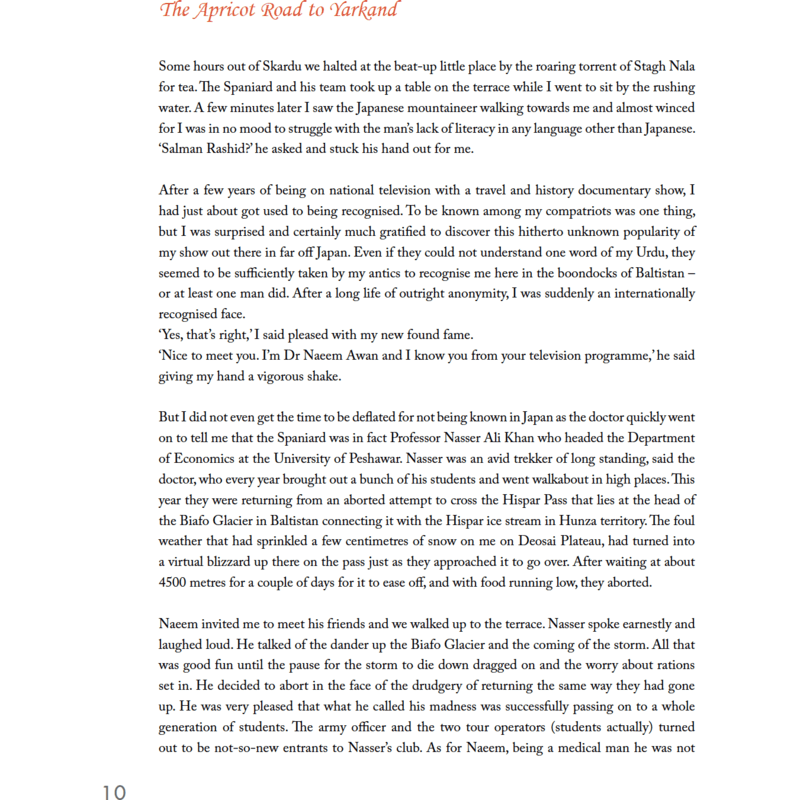
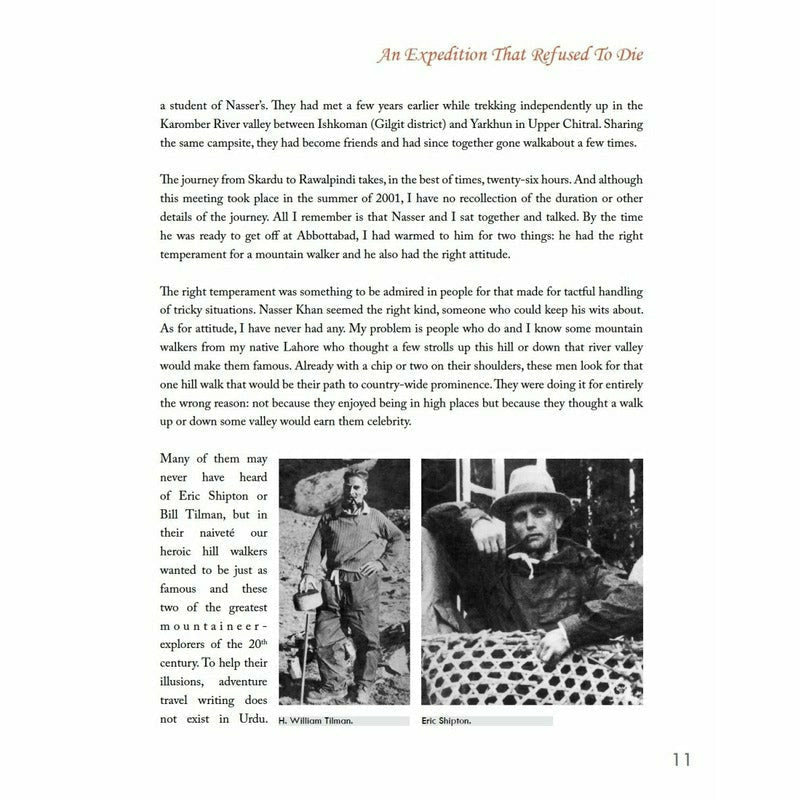
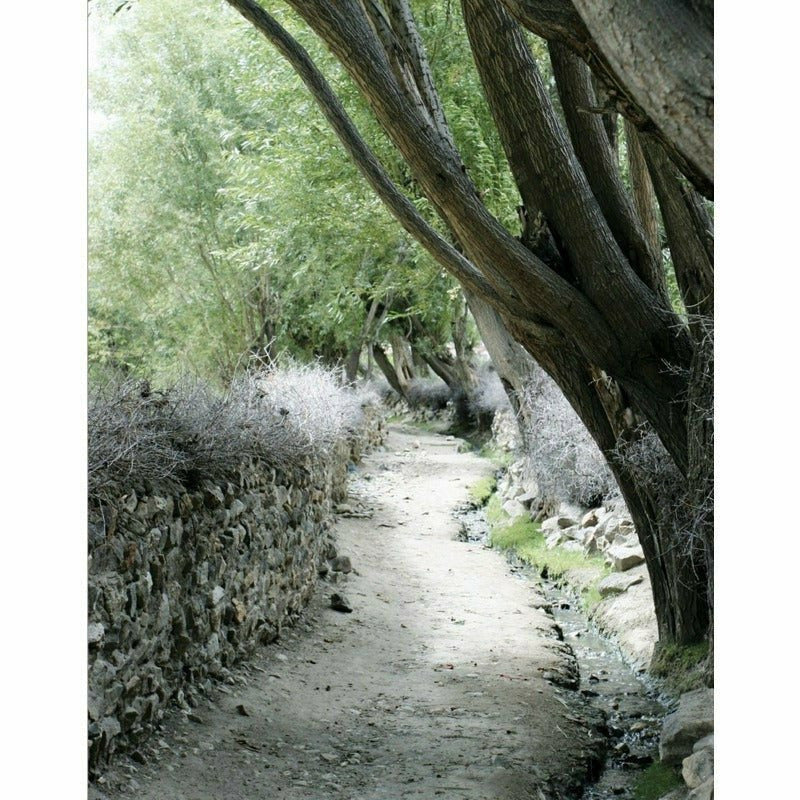
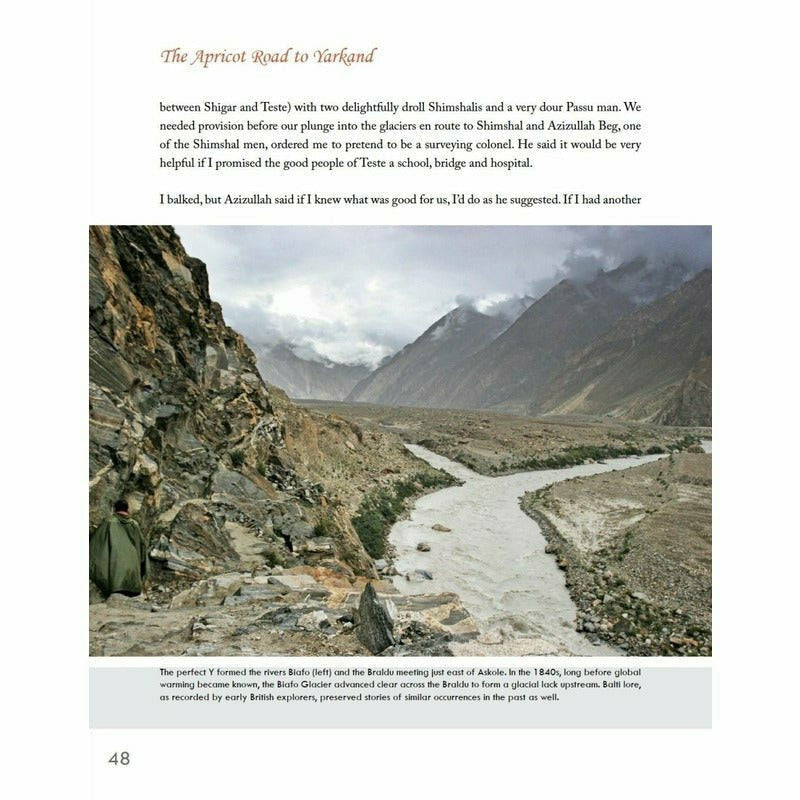
I read the Urdu version of this book & what a captivating experience. Salman sb literally takes the reader into the wilds & with help of Google earth one can correlate the observations with the maps too.
Very fast delivery, products were packed nicely but 2-3 pages of the book were upside down which is not cool!
Absolutely top class service: the book was in my hands in less than 72 hours from ordering it. Lahore to Karachi. Very well packed, no damage. The book itself was well-printed and well-bound. A happy experience. Thank you, Sang-e-meel Publications

